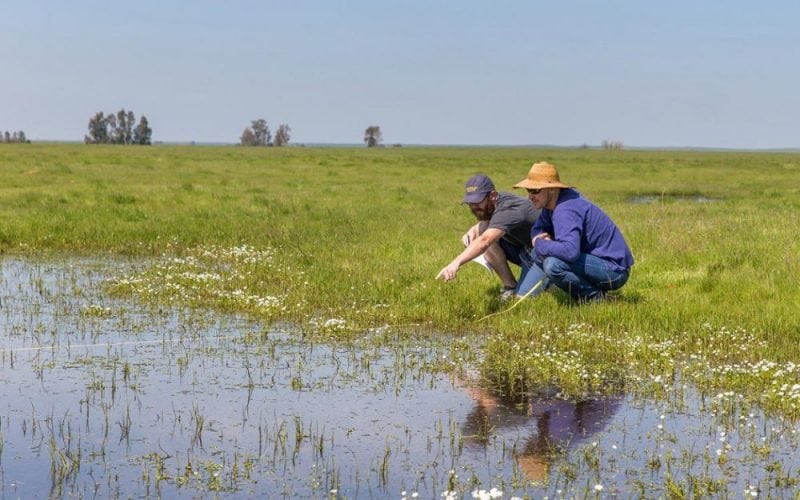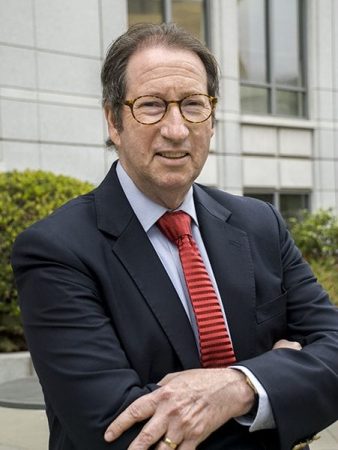
Welcome to the My Science Life feature of Art Ellis, the vice president for research and graduate studies at the University of California Office of the President (UCOP).
I joined the University of California Office of the President (UCOP) as vice president for research and graduate studies in 2016. My research and teaching disciplinary background are chemistry. Since 2002, I have held a series of full-time administrative leadership positions, first at the U.S. National Science Foundation, then at UC San Diego and City University of Hong Kong, and now at the system-wide level for the University of California (UC). The UC includes 10 campuses, 5 medical centers, and 3 affiliated national laboratories.

Dr. Arthur Ellis (UCOP)
Some additional information about my background can be found at the UCOP website for the office of Research and Graduate Studies (RGS). The overarching objective of RGS is the pursuit of collective excellence across the UC system, sometimes described as “making the whole more than the sum of its parts.” Our website has a document, “The Pursuit of Collective Excellence in Research at the University of California,” which describes many dimensions of this concept. Preparation of the document – which articulates the importance of contributions to team-based research and translational research, new research tools, the teaching-research nexus, and a diverse, globally-engaged workforce – benefited from broad input obtained from many colleagues in the UC system.
What is your job like on a daily basis?
Every day, I am privileged to work with talented, dedicated faculty, research staff, students and administrators from across the UC system. It is fascinating to learn about advances being made by UC scholars each day in areas ranging from artificial intelligence to climate science to digital humanities and to assist our scholars in their efforts to secure resources for their cutting-edge projects. Many research issues are addressed at UC’s campuses and national laboratories. In some cases, though, it is appropriate for the UC system to speak with one voice, such as in potential agreements with industry or proposed state or federal budgets and legislation. Our office often initiates and facilitates such system-wide discussions.
Additionally, there are a number of multi-campus research units for which our office has oversight. These collaborations exist in various fields, including astronomy, transportation, and the humanities. We support UC’s Natural Reserve System, comprising 39 ecologically distinct sites around California that are used for various research projects.
Our office also works with the UC system on initiatives like promoting diversity and strengthening mentoring in graduate education. A related initiative is identifying strategies for increasing participation in undergraduate research across UC. The goal is for all UC undergraduates to have the chance to make original discoveries so they understand how new knowledge is created in their disciplines. Many UC undergraduates are already contributing to advances in fields like biofuels, education policy, and neuroscience. Our office has also begun working with colleagues across the UC system on promoting international research and education opportunities for students, academic staff, and faculty.
Tell us about your research
The UC research enterprise has enormous scholarly and professional scope and annual expenditures of more than $4 billion. Our office’s ability to keep a finger on the pulse of this vibrant enterprise is increasingly aided by research analytics. Large publication databases give us a birds-eye view of emerging research trends that are ripe for interdisciplinary collaborations, such as precision agriculture, gene editing, and international migration, with partners from both within and outside of the UC system.
Moreover, our office manages grants programs at both system-wide and state-wide levels that provide, in many cases, seed funds that researchers can leverage to obtain support from other federal and private sources. As research analytics tools become increasingly sophisticated, we anticipate that UC’s research investments can provide progressively more impact, particularly in areas where nucleating collaborations and applying state-of-the-art tools have the potential to catalyze the rapid expansion of knowledge.
What are some of the biggest challenges in your field?
Achieving collective excellence presents at least three interrelated challenges. One is being able to identify timely opportunities for enhancing UC’s research impact and, if there are barriers, determining how to minimize or eliminate them. With the tools we have now for characterizing and tracking new knowledge, we can better see connections involving existing work by our scholars; envision and seed new collaborations in emerging research areas, and identify areas where there are research gaps that need to be filled. A second challenge is recruiting and retaining an outstanding, diverse faculty that provides the multiple perspectives that are the basis for the pursuit of collective excellence. A third challenge is cultural: We are raising awareness of the collective responsibilities of academic units and the need to ensure that collective success in meeting them is recognized and rewarded.
With regard to graduate studies, our office is working with the UC campuses to enhance the attractiveness and effectiveness of UC’s graduate programs. UC recently received one of the PhD Career Pathways awards from the Council of Graduate Schools in a national competition. This award will let UC capitalize on system-wide data that will be collected to help UC’s PhD programs strengthen their recruitment and professional development activities. For example, to promote communication skills, our office supports a popular UC-wide competition called “Grad Slam,” wherein doctoral students have a chance to compete for prizes by compellingly explaining their thesis research in three minutes or less to a non-specialist audience.
What advice do you have to those pursuing a career in your field?
Research administration has many features that make it a stimulating career option. These include helping secure funds from a variety of sources that fuel research; ensuring that infrastructure, facilities, and expertise needed to do cutting-edge research are in place; championing policies and ethics needed for carrying out research responsibly; promoting knowledge transfer connections with various external sectors; and supporting the professional development of the faculty, research staff, postdoctoral scholars, and graduate and undergraduate students who participate in research.
Learning as much as possible about the nature of the research enterprise provides a strong foundation for considering a career in research administration. And because research and technology are dynamic, research administration, too, provides exposure to a steady stream of thought-provoking ideas, and numerous opportunities for creativity and for contributing to the betterment of society.
The ‘My Science Life’ project is a core part of Science Trends’ mission to give a voice to scientists and allow them to connect with tens of thousands of people. It is an opportunity for people, like yourself, to share their “story” and in doing so, make science more approachable and personal.
Interested in being part of the My Science Life project? You can find the details about submission here.









